The 11 Best Cash ETFs in Canada (Plus HISA ETFs and Money Market ETFs)
- Comparison Chart: Best Cash ETFs in Canada for 2023
- Are High Interest Savings Accounts ETFs the Same Thing as Canadian Cash ETFs?
- What Is the Best Cash ETF in Canada For Parking Cash?
- Are Cash ETFs Safe?
- Why Use Cash ETFs (Pros and Cons)
- Are Money Market ETFs the Same Thing as Cash ETFs?
- How to Buy Cash ETFs in Canada
- Cash ETFs and HISA ETFs vs GICs
- Frequently Asked Questions About Cash ETFs
- Are Canada’s Cash ETFs Worth It?
Given the realities of skyrocketing interest rates it’s no wonder that interest in Canada’s Best Cash ETFs, high interest savings account (HISA ETFs), and money market ETFs has significantly increased as well.
While Cash ETFs aren’t exactly the same thing as money market ETFs, the two are very similar. The terms high interest savings account ETF and Cash ETF on the other hand, mean exactly the same thing.
While cash ETFs are a solid investment (more on that below), you really need to consider if they’re worth it or not. Personally, I prefer the better returns short term GICs currently offer.
Comparison Chart: Best Cash ETFs in Canada for 2024
Ticker Symbol | Current Yield | Costs (MER) | |
Horizons Cash Maximizer ETF | HSAV | 5.5% | 0.15% |
Horizons High Interest Savings ETF | CASH | 5.39% | 0.11% |
Horizons USD Cash Maximizer ETF | HSUV.U | 5.70% | 0.20% |
Evolve High Interest Savings Account | HISA | 5.40% | 0.15% |
Ninepoint High Interest Savings Fund | NSAV | 5.39% | 0.16% |
Purpose High Interest Savings ETF | PSA | 5.55% | 0.17% |
CI High Interest Savings ETF | CSAV | 5.34% | 0.16% |
BMO Money Market Fund ETF | ZMMK | 5.05% | 0.14% |
iShares Premium Money Market ETF | CMR | 5.20% | 0.27% |
Horizons 0–3 Month T-Bill ETF | CBIL | 4.56% | 0.10% |
Purpose Cash Management Fund | MNY | 5.20% | 0.23% |
For more information on how Cash ETFs and other fixed income products can fit into your overall retirement picture, you can get a sneak peak at the first ever Canadian retirement course that I’m about to launch this week. Just click here to check it out.
Are High Interest Savings Accounts ETFs the Same Thing as Canadian Cash ETFs?
With all of the recent… interest – in higher interest rates, some people have gotten confused as to what actual investment products are in these ETFs.
The most important thing to understand is that all of these “Cash ETFs” that we identified above are considered very low risk, fixed income investments. They have slightly different ways of investing your money, but they have much more in common than not.
A Cash ETF is the exact same thing as a high interest savings account ETF (also called HISA ETFs).
I have to admit that I wasn’t really familiar with these products until about a year ago. After all, who cared about getting 1-2% interest rates on their money?
Consequently, if you’re like me, you didn’t really understand how an ETF that basically invested your money in a high interest savings account for you, actually got a higher rate of return than you could get.
For example, the best high interest savings accounts in Canada right now can get you about 3% interest. Sure, if we check Canada’s Best GIC Rates, we see that we can get 5.65% there, but that’s for a product that is essentially locked in for a full year. Cash ETFs are like high interest savings accounts in that they are fully liquid and can be converted to cash easily at any time.
So then how in the world is the Horizons Cash Maximizer ETF getting 5.5% yield?!
Long story short, by taking your money, and combining it with that of thousands of other Canadians, these fund companies can approach big banks and basically say, “Look, give us your best rate on basic deposits.” Because they’re dealing with such large amounts of money, they can negotiate a rate that is very close to the market rate for 1 year GICs, despite keeping the money fully liquid.
I’ve included some ETFs in the above list that are technically called money market ETFs, and we’ll learn what that means later in this article, but for now, just know that the top Cash ETFs on this list will take your investment money and put it into special high interest savings accounts at Canada’s biggest banks. That means that the terms “Cash ETF” and “HISA ETF” mean exactly the same thing most of the time.
What Is the Best Cash ETF in Canada For Parking Cash?
For my money, the Horizons Cash Maximizer ETF (HSAV) is the best cash ETF in Canada at the moment. It has a very reasonable MER, and currently has the best yield available.
On top of those advantages though, HSAV has one particular feature that puts it head and shoulders above the other ETFs:
It takes your interest investment returns, and transforms them into capital gains!
In much the same way as Horizons has done with total returns ETFs for equities, they have structured the HSAV ETF to make sure that it doesn’t distribute the interest money each month. Instead, it is automatically reinvested.
If you’re investing in a cash ETF outside of your RRSP and TFSA, then HSAV has a massive advantage, as you’ll be taxed at the advantageous capital gain rate whenever you choose to sell the ETF, as opposed to being automatically taxed at the higher rate that interest income is taxed at each month. It also makes it a perfect fit for Canadian expats – or to hold within a corporate account.
Just so that you fully understand how HSAV works though – it’s important to note that there are no new shares of HSAV being created, so it’s possible (although quite unlikely) that the ETF can trade at a slight discount or surplus to the value of the underlying high-interest accounts.
Are Cash ETFs Safe?
Cash ETFs are safe!
Full Explanation: Cash ETFs are as safe as the banks that are holding the money.
Because all of our best Canadian Cash ETFs use Schedule 1 Canadian banks (aka: the big banks in Canada) to hold their money, then as long as the bank doesn’t go bankrupt, your money is 100% safe. Canadian banks are some of the safest in the world, and I can’t see the government letting them go bankrupt, so for me, that’s plenty safe enough.
Now, it should be said that the one place we might say that Canada’s high interest savings accounts might be considered very slightly more safe than Cash ETFs, is when it comes to CDIC insurance. You can read more about the Canadian Deposit Insurance Corporation, but the basic idea is that the Canadian government will guarantee deposits up to $100,000.
You won’t have that guarantee with a Cash ETF – but again – you have the comfort of knowing that your deposit is at a major Canadian bank.
It should also be noted that when we are talking about Cash ETFs being safe, we’re referring to fraud or bankruptcy. From an investment returns perspective, the yield of Cash ETFs will go up or down with whatever the banks are willing to offer for deposits. That number of course will be directly tied to the Bank of Canada’s key interest rate.
When you look up Cash ETFs or HISA ETFs, you’ll likely see them in either $50 or $100 denominations. Some folks get scared because they see the “price” of the ETF units going up and down – but don’t be alarmed. All that’s happening is the ETF is building up cash throughout the month, and then at the end of the money they’ll send the money out to unit holders and the price will go back to $50 or $100. That’s usually the best time to buy a Cash ETF.
Why Use Cash ETFs (Pros and Cons)
For me, the case for using Cash ETFs boils down to three main considerations:
1) An excellent interest rate. Higher than what you get in a high interest savings account.
2) The money in a Cash ETF is always liquid – unlike the money in a GIC.
3) It’s just way easier to use the money already in my brokerage account.
I like to try and keep financial stuff as simple as possible. When I send money to my brokerage account, I don’t want to request to get it back again, and then set up a high interest savings account, and have to worry about the balance there too.
Instead, a person can just use a Cash ETF (in my case, it’s HSAV) to quickly invest in a very liquid form of fixed income that can be converted to Canadian Dollars at any time. A great way to get some return on money saved for a new vehicle, downpayment, or trip.
Some might point to the lack of CDIC insurance as a downside, but as I wrote above, I think the chances of a major Canadian bank going under are probably about the same as a worldwide nuclear war.
The relatively small Management Expense Ratios (MERs) do eat into your earnings yield to some degree, but considering how much more yield the ETF companies are able to negotiate versus your regular high interest savings account options – you’re way ahead of the game.
I would argue the only true downside to using a Cash ETF is the opportunity cost of not having your money in another investment. While the current 5.5% yield on my favourite Cash ETF is a really solid guaranteed return, it’s still not even close to the 9-10% that the stock market has averaged in Canada and the USA over the last 100 years.
Are Money Market ETFs the Same Thing as Cash ETFs?
If you search for Cash ETFs and high interest savings account ETFs you’re also likely to come across the phrase money market ETFs.
As I said in the introduction, Cash ETFs and HISA ETFs are the exact same thing.
Money market ETFs are very similar to Cash ETFs, but they aren’t identical.
Both money market ETFs and Cash ETFs would be considered fixed income investments, and both are directly tied to interest rate moves.
The difference is that money market ETFs generally consist of very short term government and corporate debt (say 1-3 months in duration), whereas Cash ETFs and HISA ETFs are literal liquid cash held in high interest accounts.
How to Buy Cash ETFs in Canada
Several of Canada’s largest big bank brokerages don’t allow you to purchase these Cash ETFs.
That said, both of our leading online brokerages do offer user-friendly access to Canada’s Cash ETFs. You can check out our Qtrade Review and Questrade Review for more information.
Buying a Cash ETF is no different than purchasing a stock or any other ETF. You simply decide how much money you want to invest, divide that amount by what the ETF costs per unit (usually about $50), and then type in the number of units you wish to purchase.
Cash ETFs and HISA ETFs vs GICs
In the battle for the best low risk investments in Canada, it’s certainly worth comparing our best GIC rates to cash ETFs.
The argument between Cash ETFs and GICs basically comes down to how much you value the extra liquidity of a Cash ETF vs the slightly more safe (again, both are very very very safe investments) nature of a GIC, plus the slightly higher interest rates that a GIC offers.
Personally, if you already have the money in a brokerage account, then I think the sheer convenience of a Cash ETF makes a lot of sense. That said, you can check out our EQ Bank Review if you want to see all the cool ways opening an account with Canada’s best GIC bank can help you. Currently their rates top out at 5.75%.
GICs are also a great idea if you think interest rates might go down quickly. Cash ETFs will immediately reflect interest rate cuts, whereas GIC rates are locked in for the period you purchased them for (usually one to five years). Of course, if you can predict interest rate movements, then you’re a smarter person than me!
Frequently Asked Questions About Cash ETFs
Are Canada’s Cash ETFs Worth It?
Canadian Cash ETFs are a great deal in my opinion.
They’re going to provide all of the safety and stability of a high interest savings account – while coming close to matching the return on a short-term GIC. Plus, you’re going to get the convenience of keeping all of your money in your brokerage account, thus making it easier to rebalance.
In this relatively new age of higher-for-longer interest rates, maxing out the “safer” part of your portfolio and/or short-term savings needs is more important than ever. The opportunity cost of having your money sitting in a Big Bank savings account is MUCH higher than it was a couple of years ago.
At the end of the day, Cash ETFs are a solid tool to add your portfolio arsenal. I’m not likely to ever have a large amount of my personal assets in fixed income products, but when used for the right purpose, Cash ETFs or HISA ETFs are a very solid value.
I've Completed My Million Dollar Journey. Let Me Guide You Through Yours!
Sign up below to get a copy of our free eBook: Can I Retire Yet?


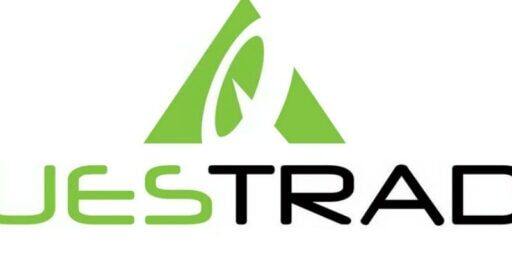
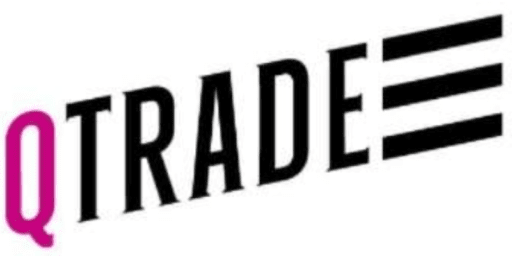


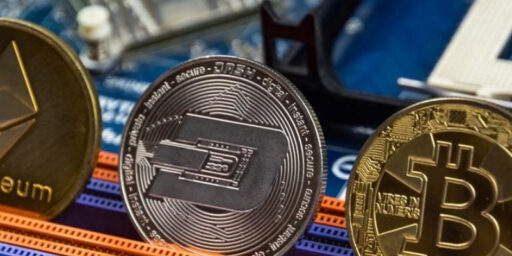
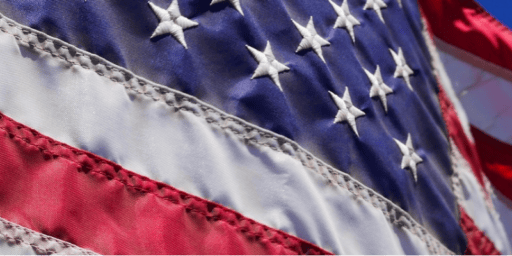
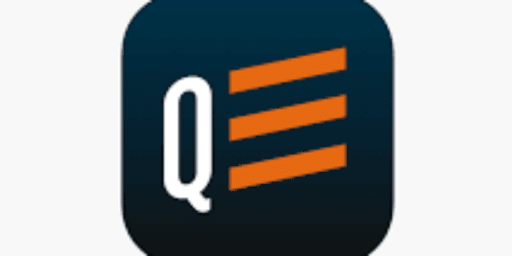


HSAV is precisely what I am looking for, so of course, they have suspended new subscriptions and advised clients not to purchase. This suspension was on February 2022, so why do you say they are still the best bet when Horizon themselves warm against purchasing?
“ Due to this expected premium, Horizons ETFs is strongly discouraging purchases of shares of HSAV during this suspension of subscriptions.”
How does something like DYN6004 compare, which Correct me if I’m wrong, is a mutual fund. A slightly lower rate, but just as liquid and no trading fees if you’re an itrade client. Is something like this recommended?
Hi Kyle,
HSAV is a great ETF, as you point out, but it does come with additional risk. While the counterparty risk is safer being with big Canadian banks, it does exist. Not sure if something can break the corporate structure (taxable gains, regulatory?) but I’d probably be happy taking that risk with some of my money. HSAV trading at a premium or discount to NAV, however, is very much a likely thing. The premium is currently at 1.2% but it has been above 1.5%. A lot of people without tax sheltered room want into this thing these days & the price has been pretty consistently bid up.
Paul
If you have HSAV in an unregistered account do you have to track the ACB or just pay capital gains on the growth when you sell? I realize that if you add/withdraw money to the account at any time that will change the ACB but are there any other things that need to be tracked each year as there are with equity ETFs?
I’m looking to park my emergency funds into one of those HISA ETFs and HSAV seems to be the better choice given that I’ll be doing it in a non registered account. However, my understanding is that the more expensive the ETFs units become compared to NAV, the less sense it makes. Is this correct? Did I miss the boat or is this still a good buy? Or am I completely misunderstanding how it works?